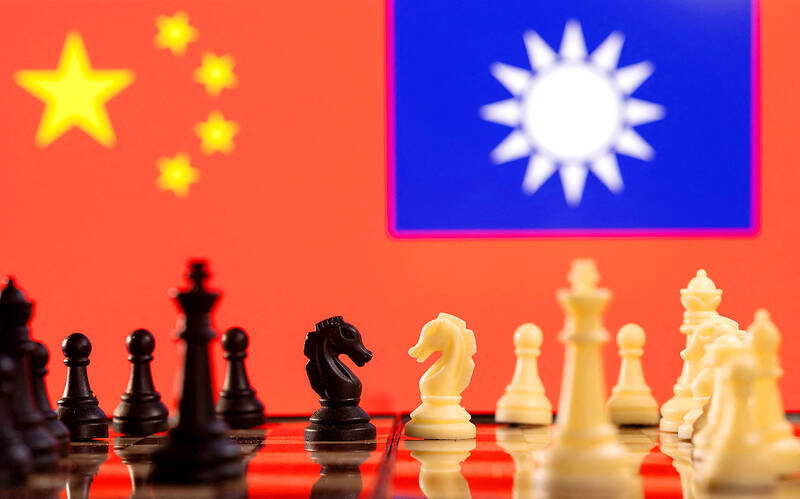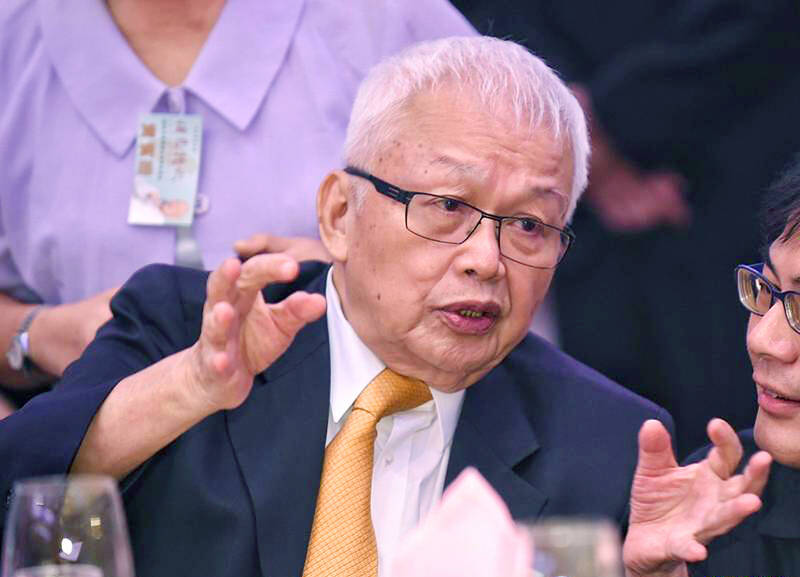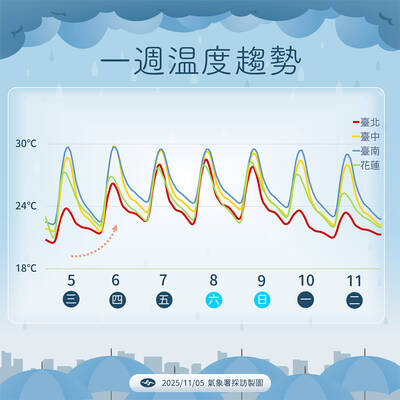The Chinese People’s Liberation Army (PLA) would not be able to launch an invasion of Taiwan for at least another 10 years, Taiwan Research Institute founder Liu Tai-ying (劉泰英) said on Friday.
To occupy Taiwan, China needs to transport at least 300,000 to 400,000 troops across the Taiwan Strait during battle, but it would lack the ability to do so for at least another decade, said Liu, a former Chinese Nationalist Party (KMT) treasurer and a close aide to former president Lee Teng-hui (李登輝).
The challenges that China would face during an attempted invasion of Taiwan would be even greater than those faced by the Allies during the Normandy landings, he said.

Photo: Reuters
The landings during World War II, the largest of their kind in history, involved transporting about 160,000 soldiers from 12 countries, using 6,939 vessels of various types from eight navies across the 33km-wide English Channel, which is much narrower than the 130km-wide Taiwan Strait, he said.
“So where is China now? How many troop-carrying vessels does it have?” he asked.
“If paratroopers were used, the losses for China would be very high, and there are few places on Taiwan proper they could land,” Liu said.

Photo: LibertyTimes
China would also need to take into account that an invasion attempt could lead to another world war, which would likely end in the collapse of the Chinese Communist Party (CCP), he said, adding that Taiwan’s strategic importance means that US involvement in a conflict in the Strait would be inevitable.
US engagement would also likely mean the involvement of the Japan Self-Defense Forces, which, combined with Taiwan’s armed forces, would form a military several times stronger than China’s, he said.
“The US could also potentially use Patriot missiles deployed in Japan, South Korea and Taiwan to intercept any intercontinental ballistic missiles fired at its forces by China,” he said.
“A US drone was used to assassinate senior Iranian general Qasem Soleimani in 2020. The US’ weapons systems and intelligence programs are more sophisticated than China’s and Russia’s,” Liu said.
China’s strategy toward Taiwan is still mainly political in nature, and it seeks to disrupt Taiwanese society and politics by bribing Taiwanese officials, he said, adding that a military conflict would be too costly for China.
While Taiwan’s infrastructure is vulnerable to Chinese missile attacks, the same is true of China’s infrastructure, he said, citing the Three Gorges Dam as an example.
Liu said Taiwanese missiles are capable of striking the dam, “which, if destroyed, would affect up to 600 million people in China.”
“Of course, the CCP realizes what would be at stake in a war, so it would not take the risk,” he said.
In March last year, US Navy Admiral Philip Davidson said that China could invade Taiwan within the next six years.
Other experts have also said tensions across the Strait could put Taiwan in danger by 2027, the centenary of the PLA.

Three Taiwanese airlines have prohibited passengers from packing Bluetooth earbuds and their charger cases in checked luggage. EVA Air and Uni Air said that Bluetooth earbuds and charger cases are categorized as portable electronic devices, which should be switched off if they are placed in checked luggage based on international aviation safety regulations. They must not be in standby or sleep mode. However, as charging would continue when earbuds are placed in the charger cases, which would contravene international aviation regulations, their cases must be carried as hand luggage, they said. Tigerair Taiwan said that earbud charger cases are equipped

Foreign travelers entering Taiwan on a short layover via Taiwan Taoyuan International Airport are receiving NT$600 gift vouchers from yesterday, the Tourism Administration said, adding that it hopes the incentive would boost tourism consumption at the airport. The program, which allows travelers holding non-Taiwan passports who enter the country during a layover of up to 24 hours to claim a voucher, aims to promote attractions at the airport, the agency said in a statement on Friday. To participate, travelers must sign up on the campaign Web site, the agency said. They can then present their passport and boarding pass for their connecting international

UNILATERAL MOVES: Officials have raised concerns that Beijing could try to exert economic control over Kinmen in a key development plan next year The Civil Aviation Administration (CAA) yesterday said that China has so far failed to provide any information about a new airport expected to open next year that is less than 10km from a Taiwanese airport, raising flight safety concerns. Xiamen Xiangan International Airport is only about 3km at its closest point from the islands in Kinmen County — the scene of on-off fighting during the Cold War — and construction work can be seen and heard clearly from the Taiwan side. In a written statement sent to Reuters, the CAA said that airports close to each other need detailed advanced

UNKNOWN TRAJECTORY: The storm could move in four possible directions, with the fourth option considered the most threatening to Taiwan, meteorologist Lin De-en said A soon-to-be-formed tropical storm east of the Philippines could begin affecting Taiwan on Wednesday next week, the Central Weather Administration (CWA) said yesterday. The storm, to be named Fung-wong (鳳凰), is forecast to approach Taiwan on Tuesday next week and could begin affecting the weather in Taiwan on Wednesday, CWA forecaster Huang En-hung (黃恩鴻) said, adding that its impact might be amplified by the combined effect with the northeast monsoon. As of 2pm yesterday, the system’s center was 2,800km southeast of Oluanbi (鵝鑾鼻). It was moving northwest at 18kph. Meteorologist Lin De-en (林得恩) on Facebook yesterday wrote that the would-be storm is surrounded by